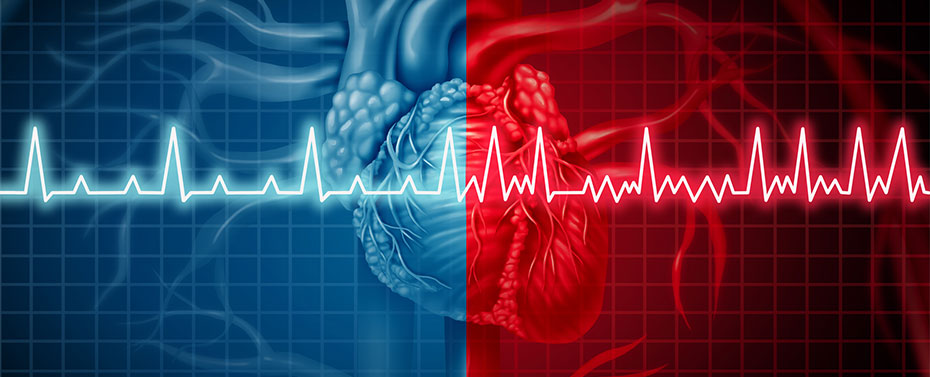Arrhythmia and Atrial Fibrillation

A heart arrhythmia (abnormal heart rhythm) is a problem with the electrical signals that control your heartbeat. If you have an arrhythmia, your heart might beat too fast, too slow or irregularly, and you may feel a fluttering sensation.
Atrial fibrillation, also called AFib, is a common type of arrhythmia that causes the upper chambers of the heart to contract abnormally. AFib can lead to blood clots, stroke, heart failure and other heart-related complications.
At Englewood Health, we have a full-service and highly experienced electrophysiology team. In addition to pacemakers and ICDs, our team implants resynchronization devices in advanced heart failure patients, which can significantly improve quality of life. We also routinely perform procedures to treat atrial fibrillation and ventricular tachycardia, as well as a range of other cardiac tests and procedures.
Dr. David Feigenblum, Medical Director of the Implantable Cardioverter Defibrillator Center
Types of Arrhythmia
Englewood Health’s heart team has extensive experience in diagnosing and treating all types of arrhythmia, including:
- Premature atrial contractions and premature ventricular contractions (PVCs)
- Atrial fibrillation (AFib) or atrial flutter
- Supraventricular tachycardia (SVT)
- Ventricular tachycardia (V-tach)
- Congenital cardiac arrhythmias including long QT syndrome
- Sinus node dysfunction
- Heart block
Arrhythmia Risk Factors
These risk factors can increase your chance of developing arrhythmias:
- Medical conditions such as coronary artery disease (blocked arteries in your heart), high blood pressure, high cholesterol, diabetes, and sleep apnea
- Lifestyle factors, such as eating a high-fat diet, experiencing stress, and being obese or overweight
- Substances, such as tobacco, caffeine, drugs, and alcohol, as well as certain over-the-counter and prescription medications, dietary supplements, and herbal remedies
- Other factors, such as aging and having a family history of heart disease
Arrhythmia Symptoms
You may not see or feel an arrhythmia, meaning it’s “silent.” If you do have symptoms, they may include:
- Palpitations (a feeling of skipped heartbeats, fluttering or “flip-flops”)
- Pounding in your chest
- Dizziness or feeling light-headed
- Fainting
- Shortness of breath
- Chest pain or tightness
- Weakness or fatigue
Why Choose Englewood Health for Arrhythmia and Atrial Fibrillation Care?
At Englewood Health, we offer:
- Sophisticated cardiac diagnostics, including advanced cardiac imaging, to pinpoint the cause and severity of the heart-rhythm condition
- Multidisciplinary cardiac electrophysiology team with specialized training and extensive experience in treating arrhythmias and atrial fibrillation using nonsurgical and surgical methods
- Minimally invasive Watchman™ Implant, an alternative to blood thinners to prevent clots from entering your bloodstream and reduce the risk of stroke

